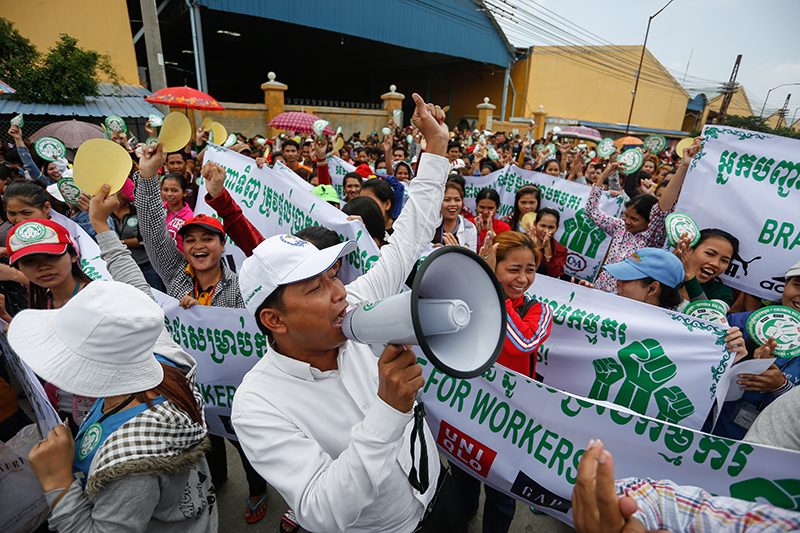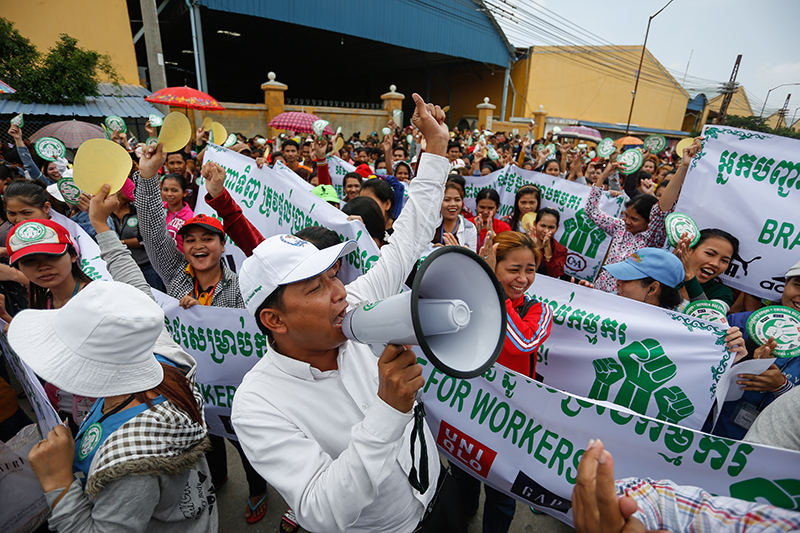The Labor Ministry said that the latest round of negotiations over the minimum wage in the country’s all-important garment industry got off to a positive start on Friday, with unions and employers beginning talks about $35 apart.
Unions are demanding a $39.60 raise to the current minimum monthly wage of $140, while the Garment Manufacturers Association in Cambodia (GMAC) has said factory owners cannot handle more than a $4.20 hike.

Opposition leader Sam Rainsy, who helped found the country’s first union, also took to Facebook to support unions’ demands.
Sixteen representatives each from unions, employers and the government met at the Labor Ministry on Friday to begin negotiations over the new wage, which will take effect in January.
“In general, we have seen that the beginning of talks this year seem to be better than before based on the tone during the meeting,” said Labor Ministry spokesman Heng Sour after the meeting. “There were no accusations being made against each other; there was respect between the two parties.”
Minimum wage negotiations and their outcome have been the cause of the greatest tension on labor relations in the $6 billion sector, with worker unrest boiling over in 2010 and 2013 in the form of nationwide strikes and protests.
The strikes that briefly crippled the sector starting in December 2013—with unions joining the opposition CNRP in mass street demonstrations—were ultimately suppressed when military police shot dead at least five workers during a violent protest.
And while wages have been quickly rising in recent years after almost two decades of stagnation, the International Labor Organization warned last month that the industry, which employs more than 600,000 people, could not handle continued wage increases without global brands paying more to factories or a significant productivity increase.
Some of the union leaders pushing for a new wage of $179.60 have already threatened strikes if their demand is not met. Far Saly, head of the National Trade Unions Coalition, said his union would accept no less than $177.
Kaing Monika, deputy secretary-general of GMAC, said that employers were not completely inflexible.
“Our official stance is the same,” he said of the $144.20 proposal. “You know, generally in negotiations we may change or provide concessions to each other.”
Mr. Rainsy, who together with other CNRP leaders went factory to factory in late 2013 to call workers to the streets, defended the latest call for a $180 floor wage in a Facebook post on Sunday.
“The current wage of 140 USD per month is just not liveable,” he wrote, shrugging off concerns that factories cannot afford another steep increase in labor costs.
“Garment factory owners could easily afford to adequately and fairly increase their workers’ wages if we put an end to the well-established practice of them sharing a significant portion of the profit from their lucrative businesses with our country’s corrupt leaders in the form of bribes.”




